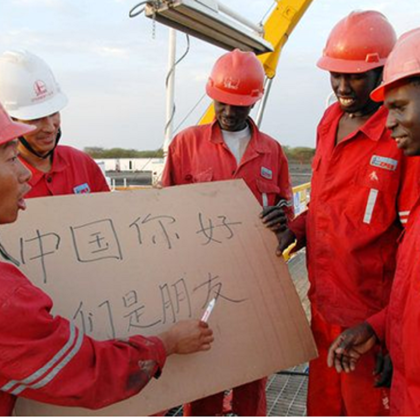CHINA IS INVESTING HEAVILY IN AFRICA, STARTING TO GAIN CONTROL IN AFRICAN CONTINENT.THERE'S NOT MUCH AFRICA CAN DO BUT ACCEPT IT.CHINA IS BECOMING WORLD'S DOMINANT ECONOMIC LOOKING FOR OPPORTUNITIES TO GROW WILL LEAVE COLONIZATION FOOTPRINT.
 It is no longer news that Chinese companies, entrepreneurs, and central and local government are investing heavily in African countries. In Kenya, the Chinese have funded and built the country’s largest infrastructure project in more than 50 years, a standard gauge railway from Nairobi to the port city of Mombasa. At the grocery chain, Nakumatt, before it went under, an aisle was reserved for Chinese food supplies to serve the Chinese community in Nairobi.
It is no longer news that Chinese companies, entrepreneurs, and central and local government are investing heavily in African countries. In Kenya, the Chinese have funded and built the country’s largest infrastructure project in more than 50 years, a standard gauge railway from Nairobi to the port city of Mombasa. At the grocery chain, Nakumatt, before it went under, an aisle was reserved for Chinese food supplies to serve the Chinese community in Nairobi.
China’s investment in Africa is largely profit- and market opportunity-driven. According to recent studies, the foreign investment rate of returns in Africa are higher than that of any other major developing areas in the world.Africa is the world’s second-largest and second-most-populous continent with 54 different countries, consisting of a large ethnicity and diversity, cultures and languages. After the end of apartheid more than two decades ago, South Africa is an economic powerhouse in Africa. Though South Africa is still the largest economy in Southern Africa, Nigeria surpassed it as Africa’s largest economy in early 2014.The study shows that, despite having made fewer foreign direct investment projects in most of Africa’s capital cities and commercial centers, it’s hard to miss China’s new presence and influence. The Chinese boom “a phenomenal story for Africa,” and sees it continuing indefinitely.Africa is the source of at least one-third of the world’s commodities, China’s determination to build roads, ports, and railroads all over Africa.The rapid rising economies of other African countries threaten South Africa’s position as a gateway to Africa.Moreover, if Africa is going through this delicate phase of economic situation, some problems have also arisen from its close relationship with China, which in recent years has in turn recorded a slowdown in economic growth, which last year has touched the value lowest since 1990.If you mean investment is colonization.Maybe the answer is yes.But the pure investment is just helping the local government to develop their economies and progress their infrastructure.that is a good thing for the local government and the public.On the contrary,the western powers' policy more like colonialism.Their investment is often accompanied by political advantage.they often fantasy to enjoy the local privileges.With their blank checks to African countries, the Chinese today are running African economies from Beijing.Look at Kenya's biggest infrastructure project dubbed SGR, every aspect of the project from evaluation to financing and implementation is done by Chinese, they are also supposed to provide engineers and drivers for the first few years after completion. This is just one example.they have bookmarked Africa as a possible settlement for the surplus population and that is why so many Chinese are in Africa today in every sector of our economy, including hawkers.China is investing heavily In Africa. Last year China announced new investments of 60 billion USD in major African Capitals. China, as compared to Western countries, is a relatively unknown entity to many Africans and thus offers an appeal that the West doesn’t with its considerably more weighty historical baggage. As part of Belt & Road Initiative, China is building roads, ports & railways in many African countries. Even before BRI, China had invested heavily in Africa in mining & agriculture sector. Africa is going to become an import source of raw material for Chinese factories & a big market for Chinese goods. China is giving fresh hopes of development to many African countries.As a developing region, Africa as a whole presents a lot of the natural resources China needs and in return, China helps to build the infrastructure African states need.China is busy offering almost ridiculous trade deals to sub-Saharan African states.Whether you like it or not, it is a race to world economic supremacy and the more economic allies you have, the better.Why do you think China hasn't intervened in North Korea’s missile testing?China is upping the ante with their own development by quickly securing economic allies and ultimately gunning for world economic supremacy.
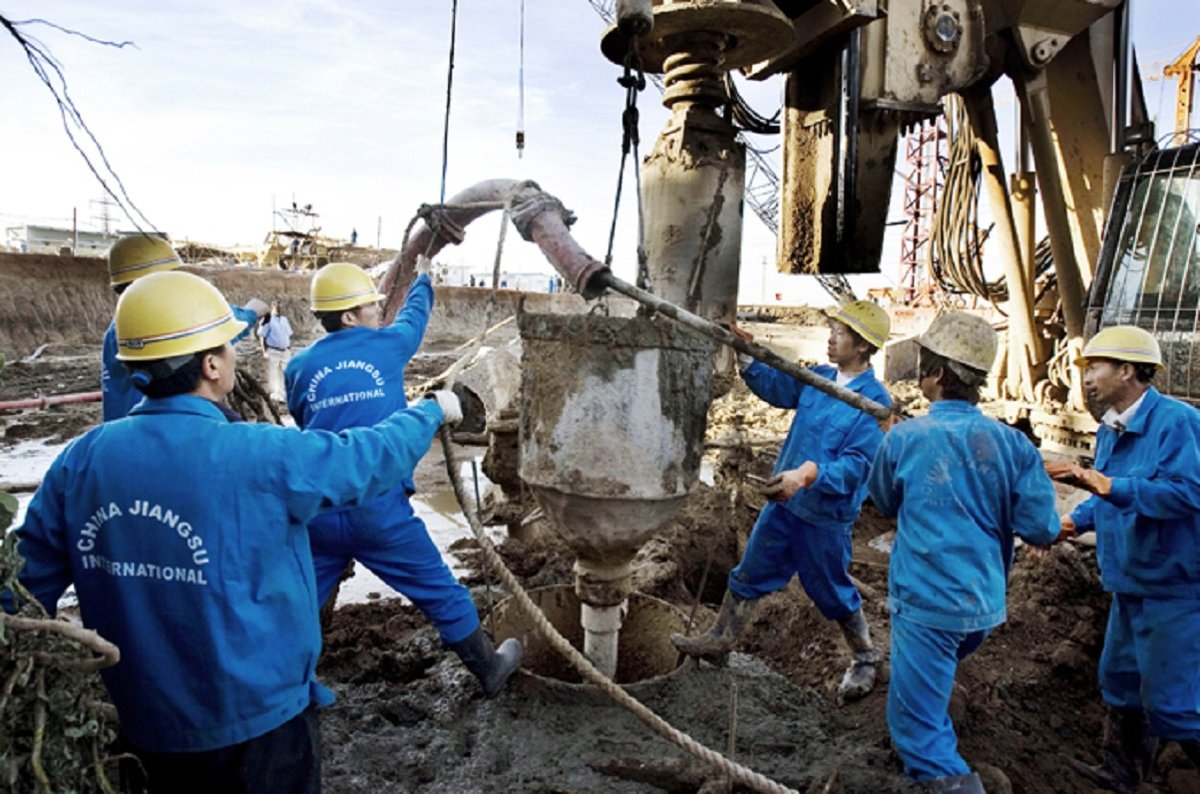
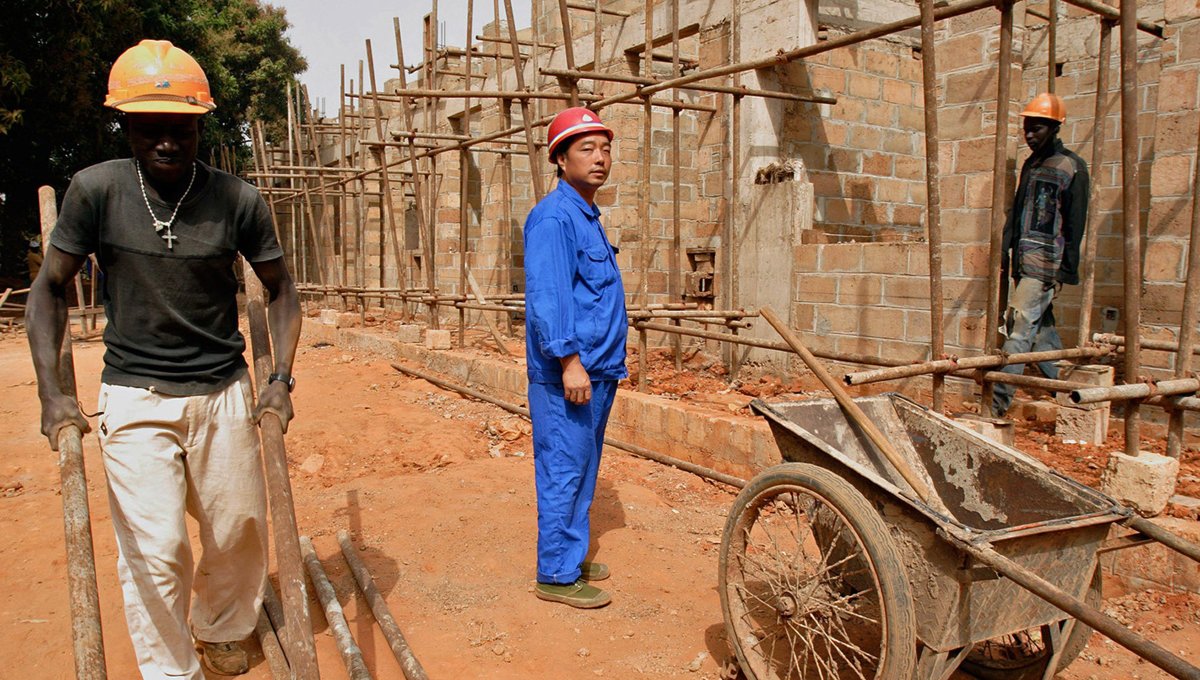 China
growing strategic presence in the arguably richest continent in the
world continues to attract microscopic investigation for several
reasons. Few of the several reasons are the nature of China’s investment
(resource-driven, influence-driven or win-win situation-driven?) and
another is the growth rate of such investment. China cares about its overseas image and has made tremendous
efforts to make sure both private and state-owned firms operate to set
standards.
China
growing strategic presence in the arguably richest continent in the
world continues to attract microscopic investigation for several
reasons. Few of the several reasons are the nature of China’s investment
(resource-driven, influence-driven or win-win situation-driven?) and
another is the growth rate of such investment. China cares about its overseas image and has made tremendous
efforts to make sure both private and state-owned firms operate to set
standards.
China is trying to leverage its financial reserves into more intimate political influence outside of its borders.China are supplying cheap products to people who live below the breadline.China has recognized that Africa can be a cheap resource for their massive resource needs as well as a rapidly expanding market for their goods. They have instituted policies to take advantage of these things. Some of these strategies are unscrupulous and have created a little bit of tension among many people in Africa. In some instances they have flouted local labor laws and have managed to gain extremely favourable deals for land and resources by bribing some officials, but by and large the strategy has been one of "Soft diplomacy", i.e. partnerships to develop infrastructure projects, loans with reasonable interest and payment schemes, sending experts to help in several industries and of course they have by and large remained out of the domestic political discourse of African countries (no lecturing on what governments should do). All this in order to gain deals for discounted oil and minerals and the freedom to dump many of their goods.China is doing business in Africa the only problem with that is the fact that the business favors them and they don’t care whether they are doing business with a dog, leopard, scorpion or a horse so as long as they make profits. Its what matters to them.In that front, they have become favorite in getting tenders especially to Africa’s corrupt governments because their Aid is not attached with restrictions, it just flows like the waters of River Nile.factor is the ability of their products being cheap. This aspect has made Chinese products flood in African markets which has actually killed local industries and also killed creativity. Chinese never do charity. It is not in Africa on cultural work or on friendly tours. It wants first to get local’s complete confidence by investing strategically & then start siphoning off the cream.Then to increase its trade, China will build roads as it economically suits her. The locals will be happy. Then to give work to the locals ( in name only), the Chinese will install power plants, start agriculture & take it back to hungry Chinese billions - all in the name of trade. When the African country is not able to pay back interest along with loan, then Chinese ask that country to make China the owner of that land & to protect its works & installations, China will send its army men in civilian clothes -to dupe the locals.In this way, Chinese “trade links” will increase & start port & Harbours development & later use it for parking Chinese naval vessels, including nuclear submarines.How can or will the local security differentiate the fact that a particular Chinese submarine is nuclear?China is already asking 11,000sq. Kilometres of Tajikistan land to be handed over to China, as Tajikistan has defaulted in debt payments to China, since 2007.SriLanka recently handed over Hambantotta port to China for 99 years lease!China has already got Airforce base in Male. China has already got military base in Djibouti & GWADER. These are parts of establishing Chinese military presence first on Eastern African coast & then will cover the Western African coast.
So first trade with African countries, then siphoning off cream & valuables including minerals & oil & then slowly shifting Chinese citizens in foreign lands - to increase its foot hold.Currently there are 2 crores of Chinese in Pakistan - with Pakistani population at 20 crores. So every 10th person in Pakistan is a Chinese. The journalists, opposition parties are clamouring in Pakistan as to what is going on in Pakistan in the name of CPEC.
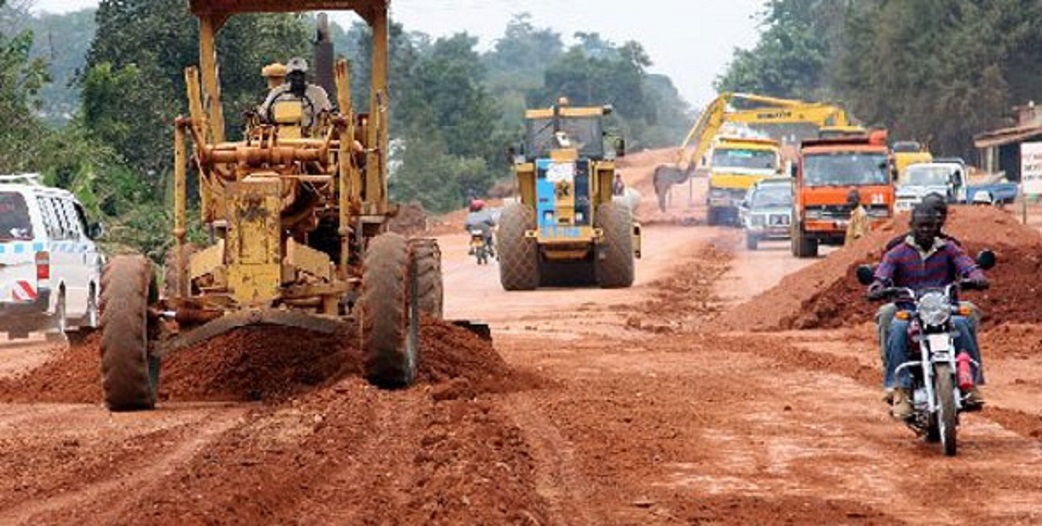
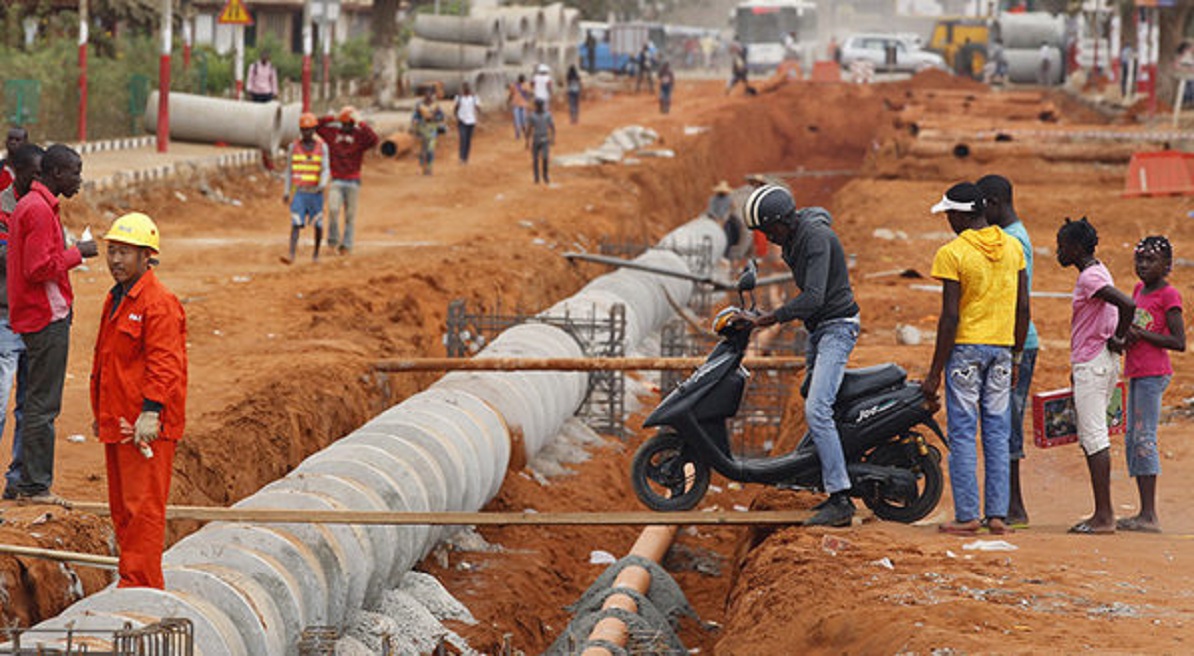 China is using a different model trading off its extraction with infrastructure.Even after the contracts expire, the states are assured of improved infrastructure in roads and the telecommunication sector.Bad deals have been witnessed in Uganda oil, Nigeria and Ghana
where the three states have lost massive resources in terms of tax and
pre-negotiated agreements.
China is using a different model trading off its extraction with infrastructure.Even after the contracts expire, the states are assured of improved infrastructure in roads and the telecommunication sector.Bad deals have been witnessed in Uganda oil, Nigeria and Ghana
where the three states have lost massive resources in terms of tax and
pre-negotiated agreements.
Why has the Dalai Lama never been granted a VISA to visit South Africa? Easy answer - this would cause too much conflict between the relations of the two countries.The Sino-African relations,a new study entitled "China-Africa: will the marriage of convenience last?". According to the financial analysts of the French group, the slowdown in the Chinese economy has sacrificed domestic consumption. For this, the Asian giant has embarked on a new course to boost consumption with respect to investments and therefore also to industrial production. Thus penalizing the Sub-Saharan region's exports to China, concentrated for more than 80% in minerals, metals and hydrocarbons.A trend that in the last two years has been confirmed by the tangible decrease in trade between the African continent and the former Middle Kingdom, as well as the decline in the flow of foreign direct investment by China to African countries.Two elements, which in addition to resulting in lower demand for African mineral and energy resources, have produced a significant decrease in raw material prices from the peaks of 2014, starting from that of crude oil.All this has halved the value of African exports, which in 2014 faced a record of 111.7 billion dollars (95.80 billion euros) against the 54.8 billion dollars (47 billion euros) of 2016.The report notes that the drop in demand will have its strongest impact especially in ten sub-Saharan countries, which have benefited mostly from financing and Chinese FDI flows. Primarily South Sudan and Angola, both characterized by economies based mainly on oil production.As a result, African countries heavily dependent on China will remain largely exposed to fluctuations in demand or a possible new fall in commodities. Besides the fact, that Chinese interests for the region are based primarily on a complex network of political and economic objectives. An aspect that makes African vulnerability also sensitive to changes in Chinese foreign policy.As many have noticed Zimbabwe’s Top General went to China a week before the coup. And, naturally, when he came back to Z a coup started. And in very Chinese way it was bloodless. Not many people died, Mugabe got kicked out, but not restrained. Some Chinese-style corruption investigations have started. First fish on a hook is their former Minister of Finance.Before Military Takeover, Chinese Investment in Zimbabwe Was Dwindling.Chinese businessmen say Zimbabwe's latest political upheaval will not affect their projects in Africa, yet economic policies against foreign companies in Zimbabwe have impacted Chinese trade and investment there. Experts say China should beware of similar political risks in other Belt and Road countries where Chinese companies invest heavily in.Zimbabwe's political turmoil has drawn widespread attention in China. Robert Mugabe, the South African nation's 93-year-old president, has long been dubbed "China's old friend." Now the military takeover aims to oust Mugabe and help Zimbabwe's former vice president, Emmerson Mnangagwa, take over.Despite close bilateral ties, Chinese trade and investment had already been dwindling due to low profitability and high political risks prior to the political crisis. Chinese investors expect the current situation in Zimbabwe will eventually lead to new and even greater opportunities.Mugabe has been kicked out as the party leader by Zanu-PF, Zimbabwe's ruling party, and was given an ultimatum to choose between resigning by Monday or being impeached.China has dozens of infrastructure projects currently taking place in Zimbabwe. The latest deal, between state-owned Dongfang Electric and the Power Construction Corporation of China to supply engines for Zimbabwe's Hwange thermal power plant, was signed on November 10, just days before the upheaval.Chinese experts and businessmen in Zimbabwe say China's investment in Zimbabwe will not be affected by the current crisis, and expect friendly relations between the two countries after the situation stabilizes. Chinese businessmen in Zimbabwe also say they are not worried about what they consider a temporary setback.
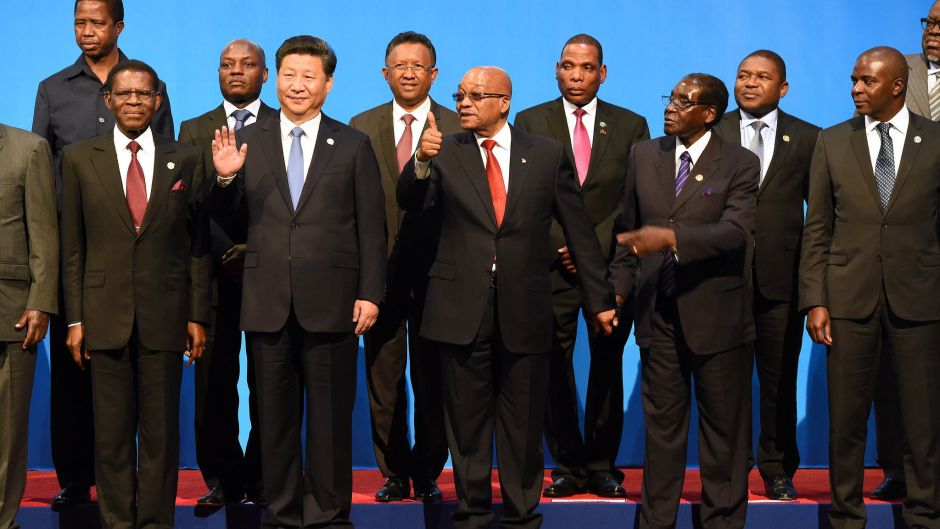 Central African Republic in the past five years have had only one prominent infrastructure project funded by China. In 2007 the Chinese company, Zhejiang Electric Power Construction Co., submitted a 117 million USD bid to the Central African Republic for the construction of the Boali No.3 hydro-electric dam.In August 2010, a delegation from the Central African Republic visited Beijing and applied for a concessional loan from the Export-Import Bank of China. Finally, in July 2011 China and the Central African Republic signed an agreement for a loan worth approximately USD 24 million to complete construction on the Boali power plant. The official groundbreaking ceremony for the plant occurred on November 28, 2011. This has been China's largest aid project to the Central African Republic. However, it has still not been completed as of 2013.
Central African Republic in the past five years have had only one prominent infrastructure project funded by China. In 2007 the Chinese company, Zhejiang Electric Power Construction Co., submitted a 117 million USD bid to the Central African Republic for the construction of the Boali No.3 hydro-electric dam.In August 2010, a delegation from the Central African Republic visited Beijing and applied for a concessional loan from the Export-Import Bank of China. Finally, in July 2011 China and the Central African Republic signed an agreement for a loan worth approximately USD 24 million to complete construction on the Boali power plant. The official groundbreaking ceremony for the plant occurred on November 28, 2011. This has been China's largest aid project to the Central African Republic. However, it has still not been completed as of 2013.